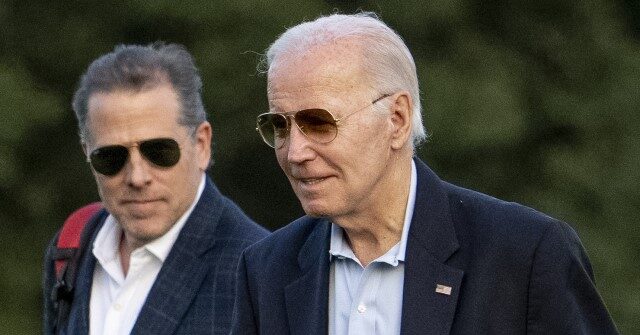In a surprising turn of events, President Joe Biden announced a full and complete pardon for his son, Hunter Biden, as he neared the end of his presidency. This decision marks a significant shift from earlier statements made by President Biden, who had consistently maintained that he would not utilize his executive powers to pardon his son. Hunter Biden had faced serious legal challenges, being found guilty on three federal gun charges in June 2023, with sentencing scheduled for December 12. Additionally, Hunter was also set for sentencing in a separate criminal matter related to federal tax evasion, further complicating his legal predicaments.
Prior to the announcement of the pardon, Hunter Biden and his father had engaged in discussions regarding his legal situation. Reports indicate that since Hunter’s conviction, President Biden spoke with close aides about the potential for a pardon, acknowledging the possibility that this action could eventually be on the table. Despite the internal deliberations, the official stance from Biden remained that he would not pardon his son, a position he publicly reiterated. However, it became clear over time that the decision to pursue a pardon was very much alive within the administration.
Hunter Biden subsequently expressed remorse for his past choices in a public statement. He characterized his “mistakes” as products of his addiction struggles, occurring during particularly challenging periods in his life. In his statement, he indicated that his situation and difficulties had been exploited for political gain, drawing attention to the public scrutiny surrounding his family. Hunter’s remarks reflect a profound sense of vulnerability tied to the personal and familial fallout from his legal issues, emphasizing the human aspect often overshadowed by political discourse.
Amidst this backdrop, the implications of the pardon remain contentious and complex. Many critics of the president are likely to view the pardon as an abuse of power or an example of nepotism, raising ethical questions regarding the legitimacy of a parent’s pardon of their child. On the other hand, proponents could argue that the pardon could serve as a means of reconciliation for a family navigating the consequences of addiction, as well as an attempt to address what some portray as politically motivated attacks on Hunter Biden. The dichotomy of public opinion illustrates the polarized sentiments surrounding the Biden family, particularly in the context of ongoing political divisions in the United States.
Media coverage around the pardon has been pervasive, highlighting the intersection of personal struggles, familial loyalty, and the nuances of political strategy. Analysts and commentators have begun to consider the broader ramifications of Biden’s decision, not just for his family but also for his administration’s image in the wake of continued legal challenges and scrutiny. The potential fallout within the political landscape, particularly as Biden’s approval ratings fluctuate, adds another layer of complexity to the narrative, suggesting that this pardon could have lasting consequences beyond the immediate familial context.
As Biden’s presidency progresses, the situation surrounding Hunter Biden’s legal challenges and the implications of the presidential pardon will likely continue to unfold. The interplay between familial responsibilities, personal accountability, and political realities remains a compelling storyline, with ongoing discussions around ethics, governance, and the socio-political dimensions of addiction and recovery. Thus, the Biden family saga encapsulates not only individual redemption arcs but also broader societal reflections on justice, privilege, and the intricate web of American political life.

